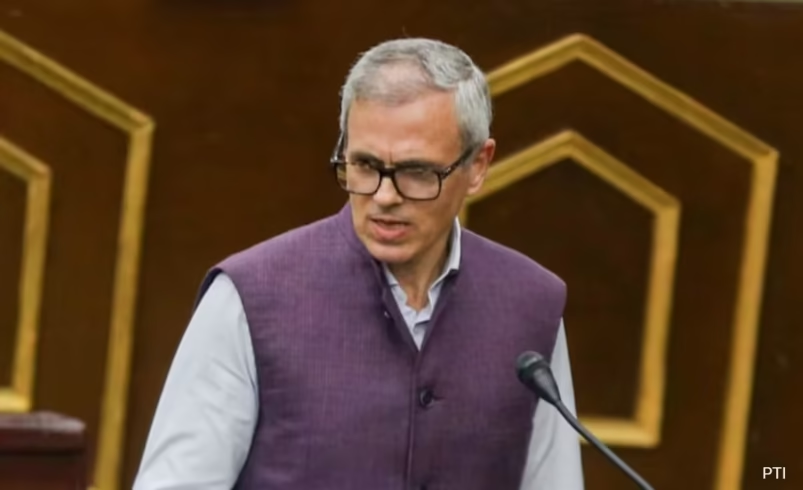Omar Abdullah Criticizes House Detention as “Tyranny of the Unelected”
- July 13, 2025
- 0

Jammu and Kashmir Chief Minister Omar Abdullah has accused authorities of confining him to his residence shortly after his return from Delhi. He described this action as a “tyranny of the unelected,” highlighting the presence of a significant police force and an armored vehicle outside his home. Abdullah shared images on social media platform X, expressing his frustration over the situation.
Abdullah’s comments reflect ongoing tensions in Jammu and Kashmir regarding governance and democratic processes. He referenced the late Arun Jaitley, stating that democracy in the region is overshadowed by unelected officials from New Delhi, who he claims are undermining elected representatives. This incident underscores the complex political landscape in Jammu and Kashmir, where local leaders often clash with central authorities.
The administration imposed restrictions to prevent gatherings on Kashmir Martyrs’ Day, a significant event commemorating those who died fighting against Maharaja Hari Singh’s regime. The Lieutenant Governor’s administration denied permission for public observance, leading to house arrests of several political figures, including former Chief Minister Farooq Abdullah. The restrictions have sparked criticism from various political leaders who view these actions as attempts to suppress historical remembrance.
July 13 marks a pivotal moment in Kashmir’s history when protests against Dogra ruler Hari Singh led to the deaths of 22 people. These events catalyzed political changes, including the introduction of democratic processes in the region. However, recent administrative decisions have altered how this day is observed, reflecting broader shifts since the revocation of Jammu and Kashmir’s special status in 2019.
Political leaders like Mehbooba Mufti and Sajad Lone have voiced their discontent with the current administration’s approach to historical events. Mufti emphasized the need for mutual recognition of heroes across regions to bridge divides, while Lone criticized attempts to redefine sacred historical narratives. The National Conference’s request to restore July 13 as a public holiday was denied, further fueling discontent among local leaders.